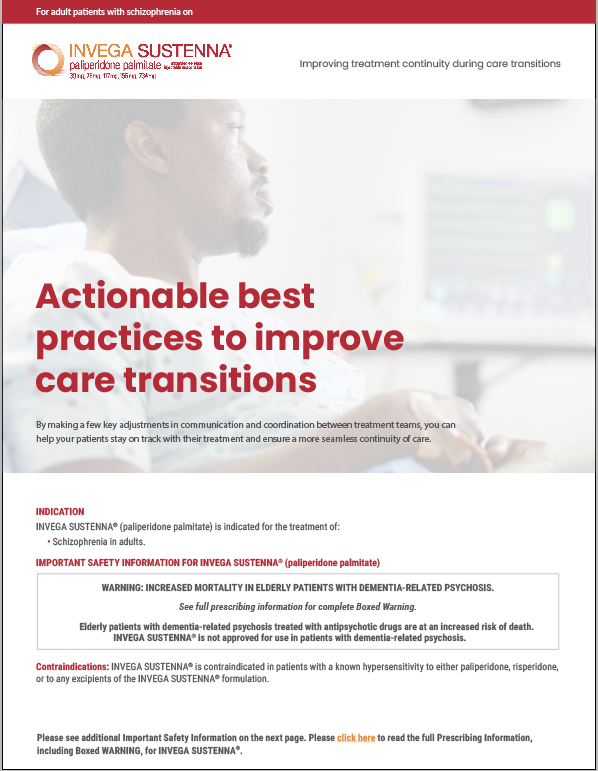INVEGA SUSTENNA® is the only long-acting injectable proven to reduce the risk of both all-cause and psychiatric, 30-day hospital readmissions vs oral atypical antipsychotics1*†‡
In a retrospective claims analysis of patients receiving INVEGA SUSTENNA®:

Adults 18-35 years had a
27% lower risk of being rehospitalized within 30 days
vs patients on oral atypical antipsychotics (OAA)1*

Adults in the overall population had a
21% lower risk of being rehospitalized within 30 days
vs patients on OAA1*
OAA MEDICATION INCLUDED:
aripiprazole, asenapine maleate, brexpiprazole, cariprazine, iloperidone, lurasidone, olanzapine, paliperidone, quetiapine, quetiapine fumarate, risperidone, ziprasidone1
ICD-9=International Classification of Diseases, Ninth Revision. ICD-10=International Classification of Diseases, Tenth Revision.
*P<0.001.
†Patients were required to have at least 1 schizophrenia-related index hospitalization during the study period defined using ICD-9 code 295.xx or ICD-10 codes F20.xx, F21.xx, or F25.xx. Coding selection included populations outside of the 2 approved indications of INVEGA SUSTENNA®. About 40% of the overall population had schizoaffective disorder, 33% had schizophrenia, and 3% had other diagnoses; however, more than 1 type per patient was possible. About 40% of the young adult population had schizoaffective disorder, 36% had schizophrenia, and 4% had other diagnoses; however, more than 1 type per patient was possible.1
‡As of January 2025.

